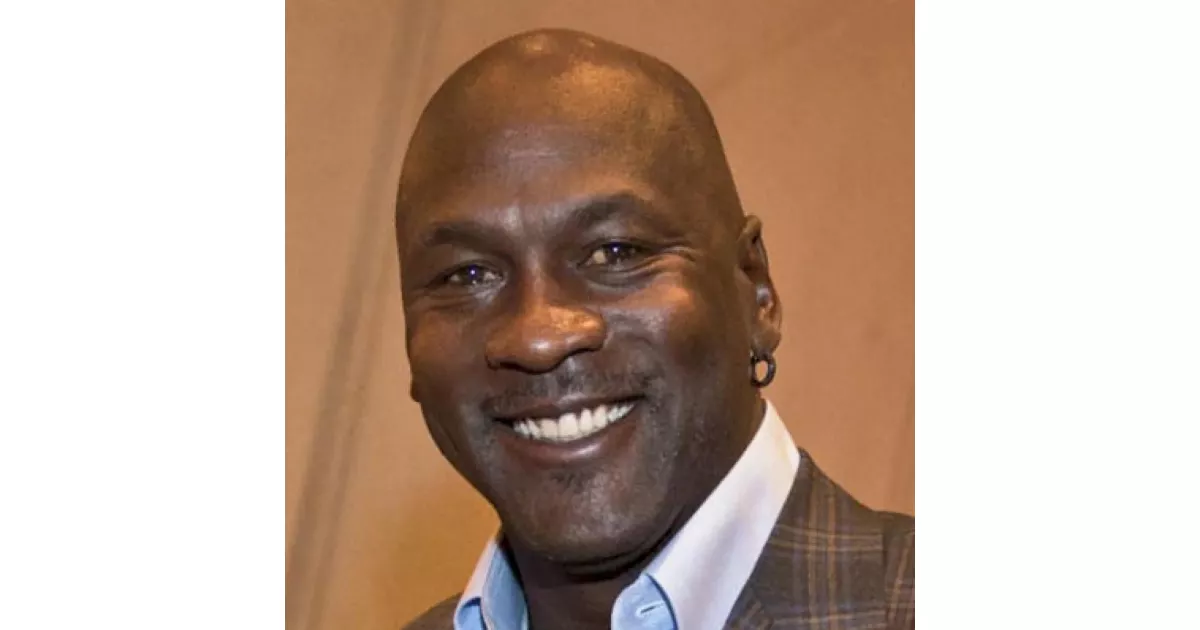Michael Jordan, often known as MJ, is a businessman and former professional basketball and baseball player. Dominating the NBA from 1984-2003, he secured six NBA championships with the Chicago Bulls. Jordan is widely considered one of the greatest basketball players ever. He played a key role in globally popularizing the sport and the NBA in the 80s and 90s, becoming a global icon. As of 2025, he is also the world's richest athlete.
February 17, 1963: Michael Jordan's Birth
On February 17, 1963, Michael Jeffrey Jordan, later known as one of the greatest basketball players of all time, was born. He is also known by his initials MJ.
1968: Family Moved to Wilmington
In 1968, Michael Jordan's family moved to Wilmington, North Carolina.
1969: Willis Reed MVP sweep
In the 1969–70 NBA season, Willis Reed completed the first sweep of the MVP awards in the All-Star Game, regular season, and NBA Finals.
1976: Jordan one of only two players since ABA–NBA merger to win six NBA Finals playing for one team
Since 1976, the year of the ABA–NBA merger, Jordan and Pippen are the only two players to win six NBA Finals playing for one team.
1980: Accepted Scholarship to UNC
In 1980, Michael Jordan accepted a basketball scholarship to the University of North Carolina at Chapel Hill, where he majored in cultural geography.
1981: McDonald's All-American Game Selection
As a senior, Michael Jordan was selected for the 1981 McDonald's All-American Game, where he scored 30 points.
1982: Game-Winning Shot
In 1982, as a freshman, Michael Jordan made the game-winning jump shot in the NCAA Championship game against Georgetown, which he later described as a major turning point in his basketball career.
1982: National Championship
In 1982, as a freshman, Michael Jordan was a member of the North Carolina Tar Heels' national championship team.
1983: Jordan Debuts for U.S. National Team, Wins Gold
In 1983, Michael Jordan made his debut as a college player for the U.S. national basketball team at the Pan American Games in Caracas, Venezuela, leading the team in scoring and winning the gold medal.
1983: NCAA All-American First Team
In 1983, Michael Jordan was selected by consensus to the NCAA All-American First Team in his sophomore season.
1983: Pan American Games Gold Medal
In 1983, Michael Jordan was selected to play for the United States national team and won a gold medal at the Pan American Games.
November 1984: Jordan Compared to Julius Erving
By November 1984, Michael Jordan was being compared to Julius Erving due to his talent in his first NBA season.
1984: Joined Chicago Bulls
In 1984, Michael Jordan joined the Chicago Bulls as the third overall draft pick.
1984: Left North Carolina
In 1984, Michael Jordan left North Carolina a year before his scheduled graduation to enter the 1984 NBA draft.
1984: Jordan Wins Olympic Gold Medal
In 1984, Michael Jordan won a gold medal at the Summer Olympics.
1984: Nike Created Air Jordan
In 1984, Nike created a signature shoe for Michael Jordan, called the Air Jordan. One of his more popular commercials for the shoe involved Spike Lee playing the part of Mars Blackmon: Lee, as Blackmon, attempted to find the source of Jordan's abilities and became convinced that "it's gotta be the shoes".
1984: Introduction of Air Jordan Sneakers
In 1984, Nike introduced Air Jordan sneakers, endorsed by Michael Jordan, which became a major success.
1984: Jordan Wins Gold in 1984
Michael Jordan won an Olympic gold medal with the U.S. men's basketball team in 1984.
1985: Rookie Season and All-Star Controversy
During his rookie 1984–85 season, Michael Jordan averaged 28.2 ppg and was voted an All-Star starter. Controversy arose before the 1985 NBA All-Star Game due to veteran players being upset by the attention he received, leading to a so-called "freeze-out".
April 20, 1986: Jordan Scores 63 Points Against Boston Celtics
On April 20, 1986, Michael Jordan established a single game playoff record of 63 points against the Boston Celtics, leading Larry Bird to describe him as "God disguised as Michael Jordan".
1986: Jordan Played Full Season
From 1986-87 to 2001-02, Jordan did not miss four or more games while active for a full season.
1986: Graduated from North Carolina
In 1986, Michael Jordan returned to North Carolina to complete his degree, graduating with a Bachelor of Arts degree in geography.
1986: Recovery from Foot Injury
Michael Jordan completely recovered in time for the 1986–87 season after breaking his foot in the third game of the 1985-86 season.
1987: Scoring Title
During the 1987–88 season, Michael Jordan led the league in scoring, averaging 35.0 ppg and was named NBA Defensive Player of the Year.
1987: Jordan Wins Slam Dunk Contest
In 1987, Michael Jordan won one of his back-to-back Slam Dunk Contest championships.
1988: Jordan Achieves 50% Shooting
In 1988, Michael Jordan had one of his six seasons with at least 50% shooting.
1988: Jordan Wins Defensive Player of the Year and MVP
In 1988, Michael Jordan was honored with both the NBA Defensive Player of the Year and Most Valuable Player awards.
1988: Jordan Wins Slam Dunk Contest
In 1988, Michael Jordan won one of his back-to-back Slam Dunk Contest championships.
1988: Led League in Scoring
In the 1988–89 season, Michael Jordan again led the league in scoring, averaging 32.5 ppg on 53.8% shooting from the field, along with 8.0 rpg and 8.0 apg.
1989: Jordan Improves Three-Point Shooting
During the 1989–90 season, Michael Jordan showed improvement in his three-point shooting, achieving a percentage of 37%.
1989: Bulls entered as a team on the rise
The Bulls entered the 1989–90 season as a team on the rise, with their core group of Jordan and young improving players like Scottie Pippen and Horace Grant, and under the guidance of new coach Phil Jackson.
March 28, 1990: Career-High 69 Points
On March 28, 1990, Michael Jordan scored a career-high 69 points in a 117–113 road win over the Cavaliers.
1990: Second MVP award
In 1990, Michael Jordan won his second MVP award with averages of 31.5 points per game on 53.9% shooting, 6.0 rebounds per game, and 5.5 assists per game. The Bulls finished first in their division for the first time in sixteen years and set a franchise record with 61 regular season wins.
1990: Acquisition of Nissan Dealership
In 1990, Michael Jordan's automotive group acquired a Nissan dealership in Durham, North Carolina.
1991: Alleged Affair with Karla Knafel
In 1991, Karla Knafel claimed Michael Jordan was the father of her child and promised her $5 million for remaining silent. However, a DNA test showed that Jordan was not the father of the child.
1991: Continued dominance and second consecutive MVP award
In 1991, Michael Jordan and the Bulls achieved a 67–15 record, surpassing their franchise record from the 1990–91 season. Jordan also secured his second consecutive MVP award, averaging 30.1 points, 6.4 rebounds, and 6.1 assists per game with a 52% shooting accuracy.
1991: "Be Like Mike" Gatorade Commercials
Since 1991, Michael Jordan has appeared in over 20 commercials for Gatorade, including the "Be Like Mike" commercials.
1992: Super Bowl Commercial with Bugs Bunny
During 1992's Super Bowl XXVI, a Nike commercial featured Michael Jordan and Bugs Bunny playing basketball together.
1992: Jordan Improves Three-Point Shooting
During the 1992-93 season, Michael Jordan showed improvement in his three-point shooting, achieving a percentage of 35%.
1992: Jordan Achieves 50% Shooting
In 1992, Michael Jordan had one of his six seasons with at least 50% shooting.
1992: Olympics
In 1992, Michael Jordan was selected to play for the United States national team during his NBA career and won the Tournament of the Americas and Summer Olympics gold medals—while also being undefeated.
1992: Jordan played in a Game 7
In the 1997–98 season, The Bulls won the Eastern Conference Championship for a third straight season, including surviving a seven-game series with the Indiana Pacers in the Eastern Conference Finals; it was the first time Jordan had played in a Game 7 since the 1992 Eastern Conference Semifinals with the New York Knicks.
1992: Jordan Wins Gold in 1992
Michael Jordan won an Olympic gold medal with the U.S. men's basketball team in 1992.
July 23, 1993: Murder of James R. Jordan Sr.
On July 23, 1993, James R. Jordan Sr., Michael Jordan's father, was murdered at a highway rest area in Lumberton, North Carolina. Two teenagers carjacked his Lexus and dumped his body in a South Carolina swamp.
October 6, 1993: Jordan Announces His Retirement
On October 6, 1993, Michael Jordan announced his retirement from basketball, citing a loss of desire to play. He later stated that the murder of his father three months prior contributed to his decision.
1993: Jordan Seen Gambling in Atlantic City During NBA Playoffs
During the 1993 NBA playoffs, Michael Jordan was seen gambling in Atlantic City. That same year, author Richard Esquinas claimed he had won $1.25 million from Jordan on the golf course.
1993: Third NBA Championship and Finals MVP Award
In 1993, Michael Jordan and the Bulls won their third NBA championship against Charles Barkley and the Phoenix Suns. Jordan averaged a Finals-record 41.0 points per game during the six-game series and became the first player in NBA history to win three consecutive Finals MVP awards.
1993: Third NBA Title and First Retirement
In 1993, Michael Jordan and the Chicago Bulls won their third consecutive NBA title, completing a three-peat. Jordan then abruptly retired before the 1993–94 NBA season to play Minor League Baseball.
1993: Rumors of Secret Suspension for Gambling
In 1993, Michael Jordan retired, resulting in rumors of secret suspension for gambling. In 1995 and 2006 David Stern, the commissioner of the NBA, denied the rumors.
November 1, 1994: Number Retired by the Bulls
On November 1, 1994, Michael Jordan's No. 23 was retired by the Bulls in a ceremony that included the erection of a permanent sculpture known as The Spirit outside the new United Center.
1994: Jordan improves his three point shooting
From 1994 to 1997, Michael Jordan shot higher percentages from 3 points.
March 1995: Jordan Decides to Quit Baseball
In March 1995, Michael Jordan decided to quit baseball because he feared he might become a replacement player during the Major League Baseball strike and returned to the Bulls midway through the 1994–95 season.
March 18, 1995: Jordan Announces NBA Comeback
On March 18, 1995, Michael Jordan announced his return to the NBA with a two-word press release: "I'm back."
March 28, 1995: Jordan Scores 55 Points Against Knicks
On March 28, 1995, Michael Jordan scored 55 points against the New York Knicks at Madison Square Garden, marking a significant moment in his comeback to the NBA.
1995: Lincoln-Mercury Dealership
From 1995, Michael Jordan's automotive group had a Lincoln-Mercury dealership.
1995: Jordan trains aggressively
In 1995 Michael Jordan was motivated by the playoff defeat and he trained aggressively for the 1995–96 season.
1995: NBA Denies Gambling Suspension Rumors
In 1995, David Stern, the commissioner of the NBA, denied that Michael Jordan's 1993 retirement was a secret suspension by the league for gambling.
1995: Return to the Bulls
In 1995, Michael Jordan returned to the Chicago Bulls after a brief stint in Minor League Baseball.
September 1996: Jordan Named Greatest Athlete of Past 50 Years
In the September 1996 issue of Sport, Michael Jordan was named the greatest athlete of the past 50 years.
1996: Fourth NBA Title and Record Wins
In 1996, Michael Jordan led the Chicago Bulls to their fourth NBA championship and a then-record 72 regular season wins.
1996: Jordan Named One of the 50 Greatest Players in NBA History
In 1996, Michael Jordan was named one of the 50 Greatest Players in NBA History.
1996: The Bulls had a 69-11 record
In the 1996–97 season, the Bulls stood at a 69–11 record but ended the season by losing their final two games to finish the year 69–13, missing out on a second consecutive 70-win season.
1997: Jordan improves his three point shooting
From 1994 to 1997, Michael Jordan shot higher percentages from 3 points.
1997: Filming off-court activities
From 1997–98 NBA season, an NBA Entertainment crew shot about 500 hours of candid film of Jordan's and his teammates' off-court activities which was used in the documentary The Last Dance in 2020.
1997: Fifth NBA Title
In 1997, Michael Jordan led the Chicago Bulls to their fifth NBA championship.
1997: "The Flu Game" and Fifth Finals MVP
In 1997, during Game 5 of the NBA Finals against the Utah Jazz, Michael Jordan, despite being feverish and dehydrated from a stomach virus (known as "The Flu Game"), scored 38 points, including the game-winning three-pointer. He also received his fifth Finals MVP award.
June 14, 1998: The steal
On June 14, 1998, In Game 6 of the NBA Finals, Michael Jordan steals the ball from Malone.
1998: Jordan Known as a Clutch Performer
By 1998, the season of his Finals-winning shot against the Jazz, Michael Jordan was well known throughout the league as a clutch performer.
1998: Jordan's Advice to Wizards Owner During 1998 Labor Dispute
During the 1998 labor dispute, Michael Jordan told Washington Wizards then-owner Abe Pollin: "If you can't make a profit, you should sell your team."
1998: Sixth NBA Title
In 1998, Michael Jordan led the Chicago Bulls to their sixth NBA championship.
1998: Chicago Bulls NBA Playoffs
In 2000, Michael Jordan was the subject of an IMAX documentary titled "Michael Jordan to the Max" about his career with the Chicago Bulls, especially the 1998 NBA playoffs.
1998: Played in the NBA Finals
In September 2022, Jordan's jersey in which he played the opening game of the 1998 NBA Finals was sold for $10.1 million, making it the most expensive game-worn sports memorabilia in history.
January 13, 1999: Jordan's Second Retirement
On January 13, 1999, Michael Jordan retired for the second time, citing Phil Jackson's expiring contract and the looming departures of Scottie Pippen and Dennis Rodman.
January 1999: Jordan Claimed He Would Never Play Another NBA Game
In January 1999, Michael Jordan claimed that he was "99.9% certain" he would never play another NBA game.
December 1999: Jordan Ranked Among Greatest Athletes of 20th Century
In December 1999, the Associated Press voted Michael Jordan the greatest basketball player of the 20th century and placed him second to Babe Ruth in its list of 20th century athletes.
1999: Greatest North American Athlete
In 1999, Michael Jordan was named the 20th century's greatest North American athlete by ESPN.
January 19, 2000: Jordan Joins Wizards as Part Owner and President
On January 19, 2000, Michael Jordan returned to the NBA as part owner and president of basketball operations for the Washington Wizards.
2000: Subject of IMAX Documentary
In 2000, Michael Jordan was the subject of an IMAX documentary titled "Michael Jordan to the Max" about his career with the Chicago Bulls, especially the 1998 NBA playoffs.
September 25, 2001: Jordan Announces Return to NBA, Donates Salary to 9/11 Victims
On September 25, 2001, Michael Jordan announced his return to the NBA to play for the Washington Wizards and stated his intention to donate his salary to relief efforts for the victims of the September 11 attacks.
2001: Phil Jackson Compared Jordan to Shaquille O'Neal
During the 2001 NBA Finals, Phil Jackson compared Michael Jordan's dominance to Shaquille O'Neal, noting that Jordan had to overcome fouls to perform.
2001: Hosted Michael Jordan Celebrity Invitational
From 2001, Michael Jordan hosted the annual Michael Jordan Celebrity Invitational golf tournament, which raised money for various charities.
2001: Return to NBA with Wizards
In 2001, Michael Jordan returned to the NBA for two seasons as a member of the Washington Wizards.
2001: Jordan Injures Right Knee
In 2001-02, Michael Jordan injured his right knee, ending a long streak of not missing four or more games while active for a full season since 1986-87.
2001: Jordan expressed interest in comeback
In the summer of 2001, Michael Jordan expressed interest in making another comeback, this time with his new team, inspired by the NHL comeback of his friend Mario Lemieux the previous winter.
January 4, 2002: Jordans File for Divorce, Reconcile
On January 4, 2002, Michael and Juanita Jordan filed for divorce, citing irreconcilable differences, but reconciled shortly thereafter.
2002: Named Greatest Athlete in ACC History
In 2002, Michael Jordan was selected to the ACC 50th Anniversary men's basketball team and named the greatest athlete in ACC history.
2002: Possible Influence in Wizards' Trade
In 2002, while not technically Director of Basketball Operations, Michael Jordan may have influenced the trade of Richard "Rip" Hamilton for Jerry Stackhouse during his time with the Wizards.
2002: Tributes Paid to Jordan
In 2002-03, with the recognition that it would be Jordan's final season, tributes were paid to him throughout the NBA.
February 21, 2003: Jordan Tallies 43 Points at 40 Years Old
On February 21, 2003, Michael Jordan became the first 40-year-old to score 43 points in an NBA game, marking a significant achievement during his time with the Washington Wizards.
April 16, 2003: Jordan's Final NBA Game
On April 16, 2003, Michael Jordan played in his final NBA game in Philadelphia, scoring 13 points and receiving a standing ovation from teammates, opponents, and fans.
May 7, 2003: Jordan Fired by Wizards
On May 7, 2003, Wizards owner Abe Pollin fired Michael Jordan from his role as Director of Basketball Operations.
2004: Jordan Founded Michael Jordan Motorsports
Since 2004, Michael Jordan has owned Michael Jordan Motorsports, a professional closed-course motorcycle road racing team.
June 15, 2006: Jordan Buys Stake in Charlotte Bobcats
On June 15, 2006, Michael Jordan bought a minority stake in the Charlotte Bobcats, becoming the team's second-largest shareholder and taking control of basketball operations.
July 21, 2006: Jordan Wins Breach of Contract Claim
On July 21, 2006, a judge determined that Michael Jordan did not owe Karla Knafel $5 million in a breach of contract claim. The claim originated from an alleged affair and promise of payment for silence.
December 29, 2006: Jordan's Divorce from Juanita Vanoy Finalized
On December 29, 2006, Michael Jordan and Juanita Vanoy's divorce was finalized, with Juanita receiving a $168 million settlement.
2006: NBA Denies Gambling Suspension Rumors Again
In 2006, David Stern, the commissioner of the NBA, again denied that Michael Jordan's 1993 retirement was a secret suspension by the league for gambling.
2006: Part-Owner of Charlotte Hornets
In 2006, Michael Jordan became part-owner and head of basketball operations for the Charlotte Hornets (then named the Bobcats).
2008: Named Chief Wish Ambassador
In 2008, the Make-A-Wish Foundation named Michael Jordan its Chief Wish Ambassador.
2008: Jordan's Yearly Income from Endorsements
Since 2008, Michael Jordan's yearly income from endorsements is estimated at over $40 million.
June 2009: Earnings Between June 2009 and June 2010
Between June 2009 and June 2010, Michael Jordan earned $55 million, as reported by Forbes in June 2010.
August 2009: Michael Jordan Exhibit Opens at Naismith Memorial Basketball Hall of Fame
In August 2009, the Naismith Memorial Basketball Hall of Fame opened a Michael Jordan exhibit.
September 2009: Jordan's Hall of Fame Induction Speech
In September 2009, Michael Jordan was inducted into the Hall of Fame, selecting David Thompson to present him. His emotional reaction during his speech when Jordan began to cry was captured by Associated Press photographer Stephan Savoia and would later go viral on social media as the "Crying Jordan" meme.
2009: Hall of Fame Induction (Individual)
In 2009, Michael Jordan was inducted into the Naismith Memorial Basketball Hall of Fame for his individual career.
2009: Closure of Lincoln-Mercury Dealership
In 2009, Michael Jordan's Lincoln-Mercury dealership closed.
February 2010: Jordan Seeks Majority Ownership of Bobcats
In February 2010, it was reported that Michael Jordan was seeking majority ownership of the Charlotte Bobcats. On February 27, an agreement was reached with Johnson, pending NBA approval. On March 17, the NBA Board of Governors unanimously approved Jordan's purchase, making him the first former player to become the majority owner of an NBA team, and the league's only African-American majority owner.
June 2010: Ranked as 20th-Most-Powerful Celebrity
In June 2010, Forbes ranked Michael Jordan as the 20th most powerful celebrity in the world, noting he earned $55 million between June 2009 and June 2010.
2010: Bought Controlling Interest in Hornets
In 2010, Michael Jordan bought a controlling interest in the Charlotte Hornets.
2010: Hall of Fame Induction (Dream Team)
In 2010, Michael Jordan was inducted into the Naismith Memorial Basketball Hall of Fame as part of the 1992 United States men's Olympic basketball team, also known as "The Dream Team".
2010: Director of Jordan Rides the Bus Denies Gambling Suspension
In 2010, Ron Shelton, director of Jordan Rides the Bus, stated that research convinced him that the rumors about secret suspension for gambling were nonsense.
2011: Jordan Leads Hardline Owners During NBA Lockout
During the 2011 NBA lockout, The New York Times wrote that Michael Jordan led a group of hardline owners who wanted to cap the players' share of basketball-related income.
2011: Bobcats' Poor Record in 2011-12 Season
During the 2011–12 NBA season that was shortened to 66 games by the lockout, the Bobcats posted a 7–59 record and closed out the season with a 23-game losing streak, resulting in the worst winning percentage in NBA history at .106. Before the next season, Jordan expressed his frustration.
2012: Jordan Lists Highland Park Mansion for Sale
In 2012, Michael Jordan listed his Highland Park mansion for sale.
April 27, 2013: Jordan Marries Yvette Prieto
On April 27, 2013, Michael Jordan married Yvette Prieto at Bethesda-by-the-Sea Episcopal Church.
November 30, 2013: Jordan and Prieto Expecting First Child
On November 30, 2013, it was announced that Michael Jordan and Yvette Prieto were expecting their first child together.
2013: Granted 200th Wish
In 2013, Michael Jordan granted his 200th wish for the Make-A-Wish Foundation.
2013: Charlotte Bobcats become the Hornets
In 2013, the Charlotte Bobcats became known as the Hornets.
2013: Michael Jordan Motorsports Ends
Michael Jordan Motorsports, a professional closed-course motorcycle road racing team, competed with two Suzukis in the premier Superbike championship sanctioned by the American Motorcyclist Association (AMA) until the end of the 2013 season.
February 11, 2014: Prieto Gives Birth to Twin Daughters
On February 11, 2014, Yvette Prieto gave birth to identical twin daughters named Victoria and Ysabel.
June 2014: Named First NBA Billionaire
In June 2014, Michael Jordan was named the first NBA player to become a billionaire after increasing his stake in the Charlotte Hornets.
2014: First Billionaire NBA Player
In 2014, Michael Jordan became the first billionaire player in NBA history.
2014: Hosted Michael Jordan Celebrity Invitational
Until 2014, Michael Jordan hosted the annual Michael Jordan Celebrity Invitational golf tournament, which raised money for various charities.
2015: Highest Income for Retired Athlete
In 2015, Michael Jordan's income was estimated at $110 million from his Jordan Brand income and endorsements, the most of any retired athlete.
2015: Warriors Break Bulls' Record
In the 2015–16 season, the Golden State Warriors broke the Bulls' record of 72–10, which was set in the 1995–96 season.
2016: Presidential Medal of Freedom
In 2016, President Barack Obama awarded Michael Jordan the Presidential Medal of Freedom.
2016: Jordan Honored with Presidential Medal of Freedom
In 2016, President Barack Obama honored Michael Jordan with the Presidential Medal of Freedom.
2017: Highest Career Earnings
In 2017, Forbes designated Michael Jordan as the athlete with the highest career earnings.
2017: Donated $7 Million for Family Clinics
In 2017, Michael Jordan donated $7 million to fund two Novant Health Michael Jordan Family Clinics in Charlotte, North Carolina.
2018: Closure of Steakhouse in New York City
In 2018, Michael Jordan's steakhouse in New York City's Grand Central Terminal closed.
2019: Raised Over $5 Million for Make-A-Wish Foundation
As of 2019, Michael Jordan had raised more than $5 million for the Make-A-Wish Foundation.
2019: Jordan Sells Minority Piece of Hornets
During the 2019 NBA offseason, Jordan sold a minority piece of the Hornets to Gabe Plotkin and Daniel Sundheim, retaining the majority for himself, as well as the role of chairman.
2019: Donated $1 Million for Hurricane Dorian Relief
In 2019, Michael Jordan gave $1 million to aid the Bahamas' recovery following Hurricane Dorian.
June 5, 2020: Donation for Racial Equality
On June 5, 2020, following the murder of George Floyd, Michael Jordan and his brand announced a joint donation of $100 million over 10 years to organizations dedicated to racial equality, social justice, and education.
August 2020: Sneakers Auctioned for Record Price
In August 2020, the shoes Michael Jordan wore during the backboard-shattering dunk game on August 26, 1985, were auctioned for $615,000, a record for a pair of sneakers.
September 2020: Investor and Advisor for DraftKings
In September 2020, Michael Jordan became an investor and advisor for DraftKings.
September 21, 2020: Jordan and Hamlin Announce NASCAR Team
On September 21, 2020, Michael Jordan and NASCAR driver Denny Hamlin announced they would be fielding a NASCAR Cup Series team with Bubba Wallace driving, beginning competition in the 2021 season.
2020: The Last Dance Documentary
In 2020, Michael Jordan was the focus of the Emmy-winning documentary series The Last Dance.
2020: Debuted in The Last Dance
In 2020, The Last Dance, a 10-part TV documentary about Michael Jordan's life, debuted on ESPN.
February 2021: Funded Novant Health Family Clinics
In February 2021, Michael Jordan funded two Novant Health Michael Jordan Family Clinics in New Hanover County, North Carolina, with a $10 million donation.
October 2021: Named to NBA 75th Anniversary Team
In October 2021, Michael Jordan was named to the NBA 75th Anniversary Team.
2021: Jordan Selected to the NBA 75th Anniversary Team
In 2021, Michael Jordan was selected to the NBA 75th Anniversary Team.
2021: Ticket Stub Sold at Auction
In 2021, a ticket stub from Michael Jordan's NBA debut game on October 26, 1984, sold at auction for $264,000.
2021: 23XI Racing Begins Competition
In the 2021 season, 23XI Racing began competition in the NASCAR Cup Series with Bubba Wallace driving car No. 23.
September 2022: Jordan's 1998 NBA Finals Jersey Sold for Record Price
In September 2022, Michael Jordan's jersey in which he played the opening game of the 1998 NBA Finals was sold for $10.1 million, making it the most expensive game-worn sports memorabilia in history.
December 2022: NBA Unveils New MVP Trophy Named in Jordan's Honor
In December 2022, the NBA unveiled a new MVP trophy, named in Michael Jordan's honor, to be awarded beginning with the 2022–23 season, replacing the original trophy named after Maurice Podoloff.
2022: NBA Finals television ratings decline
As late as 2022, NBA Finals television ratings had not returned to the level reached during Michael Jordan's last championship-winning season.
2022: 23XI Racing Adds Second Car
In 2022, 23XI Racing added a second car, No. 45, driven by Kurt Busch.
2022: Appeared in The Captain
Michael Jordan appeared in the 2022 miniseries The Captain, which follows the life and career of Derek Jeter.
August 2023: Jordan Finalizes Sale of Hornets Majority Stake
In August 2023, Michael Jordan finalized the sale of his majority stake in the Hornets to Gabe Plotkin and Rick Schnall, ending his 13-year tenure as majority owner, although he kept a minority stake. The sale was officially completed for approximately $3 billion.
2023: 23XI Racing Fields Third Car
In 2023, 23XI Racing fielded a third car, No. 67, driven by Travis Pastrana in the Daytona 500.
2023: Donated $10 Million to Make-A-Wish
In 2023, Michael Jordan donated $10 million to the Make-A-Wish Foundation for his 60th birthday.
2023: Selling Majority Stake
In 2023, Michael Jordan sold his majority stake in the Charlotte Hornets.
2024: Steals Stat Inflation
A 2024 study by Tom Haberstroh found that there were games where Jordan was often credited with steals that could not have happened.
2024: Funded Novant Health Clinic Opening
In 2024, Michael Jordan funded the opening of another Novant Health Clinic in Wilmington.
2024: Juanita's divorce settlement value in 2024
It is reported that Juanita received a $168 million settlement, which is equivalent to $262 million in 2024.
May 2025: Special Contributor for NBA on NBC
In May 2025, Michael Jordan was announced as a special contributor for the NBA on NBC commentary team.
2025: 23XI Racing Acquires Third Charter
23XI Racing acquired a third charter from the defunct Stewart-Haas Racing, the No. 35 driven by Riley Herbst beginning in 2025.
2025: Net Worth Estimated at $3.8 Billion
As of 2025, Forbes estimated Michael Jordan's net worth at $3.8 billion, making him one of the richest celebrities.
2025: Net Worth
As of 2025, Michael Jordan's net worth is estimated to be $3.8 billion, making him one of the world's richest celebrities.
Mentioned in this timeline

Basketball is a team sport played on a rectangular court...
McDonald's is an American multinational fast food restaurant chain As...

Barack Obama the th U S President - was the...

Michael Joseph Jackson the King of Pop was a highly...
IMAX is a proprietary system utilizing high-resolution cameras film formats...
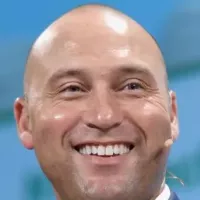
Derek Jeter nicknamed the Captain is a retired American professional...
Trending
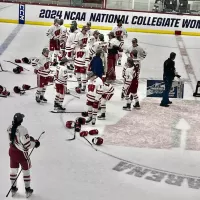
49 minutes ago USA Women's Hockey Olympic Win Over Italy Marred by Heated Play and Officiating
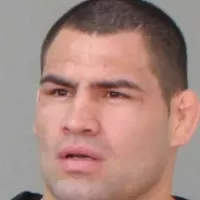
50 minutes ago Cain Velasquez Granted Early Parole, Announces Mental Reset Seminar Plans Post-Release.
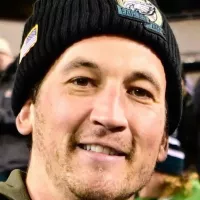
50 minutes ago Miles Teller stars in Apple TV's 'Eternity': Ending, review, and similar rom-coms.

2 hours ago The Highwomen Return: Carlile, Crow, Judd, and Spencer Reunite for Canyon Performances.

2 hours ago Raphael Veiga's game impresses fans; Adapts to Mexico after leaving Palmeiras.
2 hours ago Jalen Williams Injury Scare: Thunder Re-evaluating Hamstring After All-Star Break
Popular

Kid Rock born Robert James Ritchie is an American musician...

Pam Bondi is an American attorney lobbyist and politician currently...
Randall Adam Fine is an American politician a Republican who...

Barack Obama the th U S President - was the...
The Winter Olympic Games a major international multi-sport event held...

XXXTentacion born Jahseh Dwayne Ricardo Onfroy was a controversial yet...
